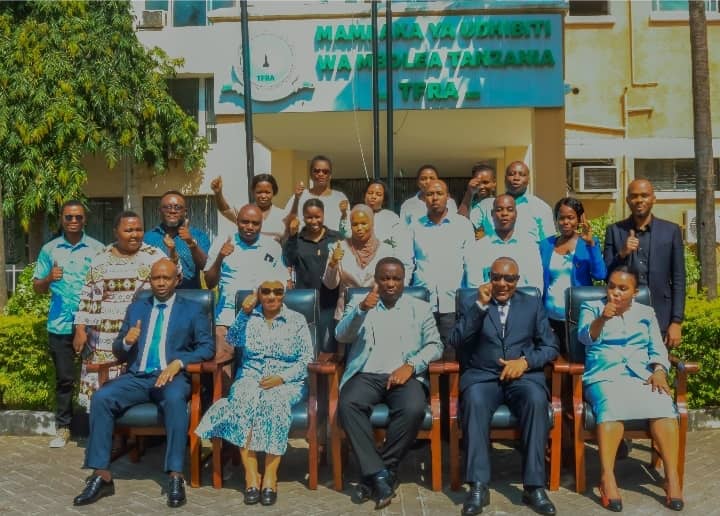 The 12th annual Africa Evidence Summit, held from July 10-11, 2024, in Dar es Salaam, Tanzania, was a landmark event that brought together over 600 participants from various organizations, institutions, and government bodies. Hosted by the Center for Effective Global Action (CEGA) in collaboration with the Network of Impact Evaluation Researchers in Africa (NIERA) and supported by partners such as the African Population and Health Research Center (APHRC). The summit aimed to promote discussions on new ways to integrate evidence into decision-making, elevate African researcher voices, and engage stakeholders in the process. It covered a broad range of sectors including gender, public health, education and employment, financial technology, literacy and inclusion, governance, and agriculture. Among these, the Sokoine University of Agriculture (SUA), an ANAPRI member centre in Tanzania, presented a crucial poster session under the agriculture sector which is implemented by the researchers from the Department of Trade and Investment.
The 12th annual Africa Evidence Summit, held from July 10-11, 2024, in Dar es Salaam, Tanzania, was a landmark event that brought together over 600 participants from various organizations, institutions, and government bodies. Hosted by the Center for Effective Global Action (CEGA) in collaboration with the Network of Impact Evaluation Researchers in Africa (NIERA) and supported by partners such as the African Population and Health Research Center (APHRC). The summit aimed to promote discussions on new ways to integrate evidence into decision-making, elevate African researcher voices, and engage stakeholders in the process. It covered a broad range of sectors including gender, public health, education and employment, financial technology, literacy and inclusion, governance, and agriculture. Among these, the Sokoine University of Agriculture (SUA), an ANAPRI member centre in Tanzania, presented a crucial poster session under the agriculture sector which is implemented by the researchers from the Department of Trade and Investment.
The researchers from Department of Trade and Investment showcased the ongoing project on value chain – Driving Inclusive Agriculture Transformation through Market-Led Approach (PPVC).
The poster session by Zena Mpenda, Joseph Kangile, and Aika Aku from SUA showcased the Policy Prioritization through Value Chain (PPVC) approach. This innovative method is designed to identify and prioritize value chains for increased private and public investment, focusing on driving Inclusive Agriculture Transformation (IAT). Developed in collaboration with the Bureau of Food and Agriculture Policy (BFAP) and the International Food Policy Research Institute (IFPRI) and supported by the Bill & Melinda Gates Foundation (BMGF), the PPVC approach is a testament to collaborative innovation.
Key Features of the PPVC Approach
- Market-Led Strategy: The PPVC approach begins with market analysis to identify opportunities and assess the feasibility of smallholder participation. This ensures that the approach is grounded in real market conditions and opportunities, fostering practical and actionable strategies.
- Evidence-Based Decision-Making: The PPVC toolkit is designed to aid governments in making informed decisions, effectively prioritizing policies and investments. This evidence-based methodology ensures that resources are allocated to areas where they can have the most significant impact.
- Public and Private Sector Collaboration: By involving both public and private sector stakeholders, the PPVC framework acknowledges the crucial role of the private sector in driving agricultural transformation. The approach extends beyond primary production to include agro-processing development and linkages, fostering a holistic view of the agricultural value chain.
- Comprehensive Policy Framework: The process involves a thorough analysis of the economic and policy landscape, followed by a focused contextualization of value chains for inclusive agricultural transformation. Priority value chains are selected based on various policy themes, with interventions modeled to determine their impact.
- Actionable Strategies: The ultimate goal of PPVC is to translate policy intent into actionable strategies that drive market-led inclusive agricultural transformation. This ensures that policies are not only well-designed but also effectively implemented to achieve tangible results.
PPVC Presentation at the Summit
The session highlighted the innovative aspects of the PPVC approach, emphasizing its potential to transform agriculture in Tanzania and beyond. By adopting a market-led strategy and fostering collaboration between the public and private sectors, PPVC represents a promising pathway to achieving inclusive and sustainable agricultural development.
Conclusion
The Africa Evidence Summit provided an invaluable platform for sharing innovative approaches like the PPVC, fostering collaboration among scholars, policymakers, and practitioners. The insights and discussions generated at the summit are expected to inform future policies and investments, advancing the impact of evidence-based practices in agriculture and other sectors. The contributions of researchers from Sokoine University of Agriculture highlight the importance of leveraging research and innovation to drive positive change, underscoring ANAPRI’s commitment to supporting inclusive agricultural transformation across Africa.




